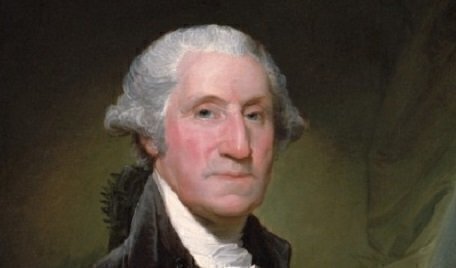Today marks the anniversary of the national Thanksgiving holiday proclaimed by George Washington, as a way to give thanks for the Constitution, and honor religious and civil liberty.
 Before 1789, Thanksgiving had been observed in different ways in different regions. And during the Revolutionary War, the Continental Congress issued various proclamations – several a year at one point – for national days of prayer and giving thanks, usually in November and December.
Before 1789, Thanksgiving had been observed in different ways in different regions. And during the Revolutionary War, the Continental Congress issued various proclamations – several a year at one point – for national days of prayer and giving thanks, usually in November and December.
President Washington had been asked by the First Congress in September 1789 to issue a proclamation from the new government under the Constitution after the lawmakers debated and passed a resolution introduced by Elias Boudinot of New Jersey in the House.
Link: Read The Full Proclamation
The resolution asked, "That a joint committee of both Houses be directed to wait upon the President of the United States, to request that he would recommend to the people of the United States a day of public thanksgiving and prayer to be observed by acknowledging, with grateful hearts, the many signal favors of Almighty God, especially by affording them an opportunity peaceably to establish a Constitution of government for their safety and happiness."
Five members of the First Congress, including Boudinot, approached Washington with the idea, and the President issued the proclamation (the second in presidential history) on October 3, 1789.
President Washington sent the Thanksgiving Proclamation to the states’ governors and asked for the leaders to make sure it was posted and published for all to see.
“I must request the favor of you to have published and made known in your State in the way and manner that shall be most agreeable to yourself,” he wrote.
The Thanksgiving Proclamation came two years before the Bill of Rights was ratified in 1791, but its tone and message is remindful of the constitutional protections of liberty in all forms that the Founders had fought for and later enshrined in Philadelphia in 1787.
Washington said he wanted the people to be thankful “for the peaceable and rational manner in which we have been enabled to establish constitutions of government for our safety and happiness, and particularly the national one now lately instituted; for the civil and religious liberty with which we are blessed.”
The proclamation also makes it clear that the Thanksgiving Day, in Washington’s opinion, should be a day of prayer, especially for lawmakers and government officials.
“We may then unite in most humbly offering our prayers and supplications to the great Lord and Ruler of Nations, and beseech Him to pardon our national and other trangressions; to enable us all, whether in public or private stations, to perform our several and relative duties properly and punctually; to render our National Government a blessing to all the people by constantly being a Government of wise, just, and constitutional laws, discreetly and faithfully executed and obeyed,” Washington asked.
The President established “Thursday, the 26th day of November next” as the Thanksgiving Day. In subsequent years, several other Presidents issued proclamations infrequently.
It was President Abraham Lincoln in 1863 who issued the next major Thanksgiving Day proclamation, and every President since Lincoln has issued an annual proclamation.
“I do therefore invite my fellow-citizens in every part of the United States, and also those who are at sea and those who are sojourning in foreign lands, to set apart and observe the last Thursday of November next as a day of thanksgiving and praise to our beneficent Father who dwelleth in the heavens,” Lincoln said.






